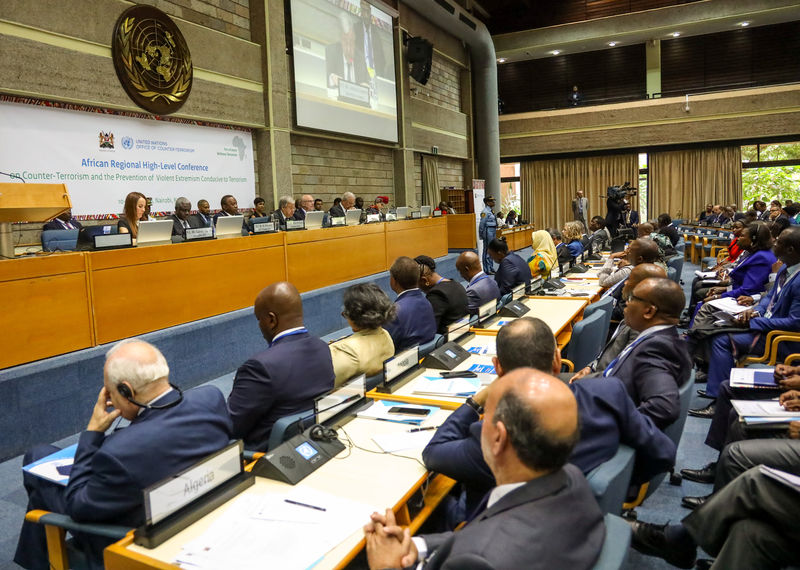By David Lewis
NAIROBI (Reuters) - Islamist attacks are spreading so fast in West Africa that the region should consider bolstering its response beyond current military efforts, and donors should back such a move, the head of the United Nations said on Wednesday.
Groups with links to al Qaeda and Islamic State have strengthened their foothold across the arid Sahel this year, making large swathes of territory ungovernable and stoking local ethnic violence, especially in Mali and Burkina Faso.
The situation has raised concerns that the perennially under-funded regional G5 force, comprising troops from Mauritania, Mali, Niger, Chad, and Burkina Faso, is unable to stop unrest fanning out from West Africa's restive hinterland to coastal countries including regional economic powerhouses Ivory Coast and Ghana.
"We should be open to initiatives that go beyond the G5 Sahel," Antonio Guterres told a news conference in Nairobi. "We are open to support any African initiative involving all the countries of a region in which the threat ... is spreading."
The G5 force has been hobbled by delays and poor coordination since its founding in 2014, officials and diplomats say. In November last year, Guterres said international donors had disbursed less than half of funds pledged for the force.
Armed militancy is not confined to West Africa and its spread has been aided in many areas by poverty, corruption and state violence.
Eleven people were killed last week in an ambush in a gas-rich province of northern Mozambique, the latest in a spate of execution-style attacks in the area.
Moussa Faki Mahamat, African Union Commission Chairman, questioned the international community's position over peacekeeping in Africa, where there was no mechanism to ensure consistent funding.

"The threat is real," he said. "Today it is all of west and central Africa that is impacted. The international community has to mobilize in the same way that there was a mobilization over Syria and Iraq."